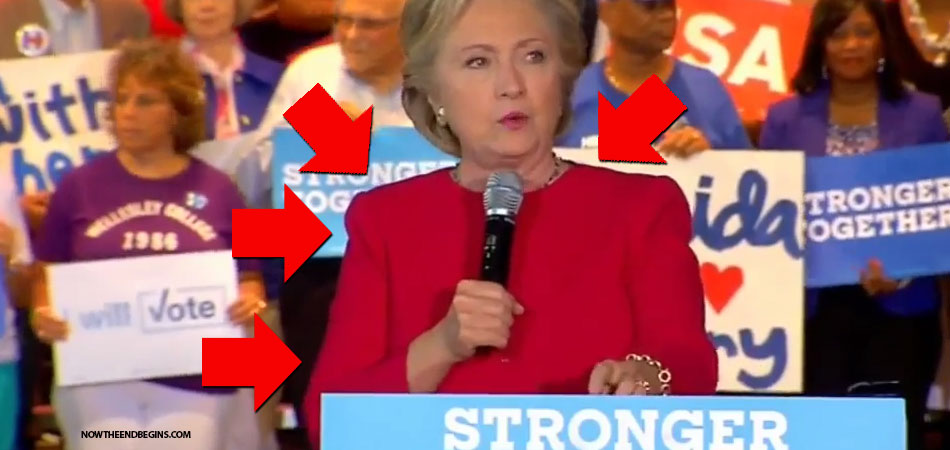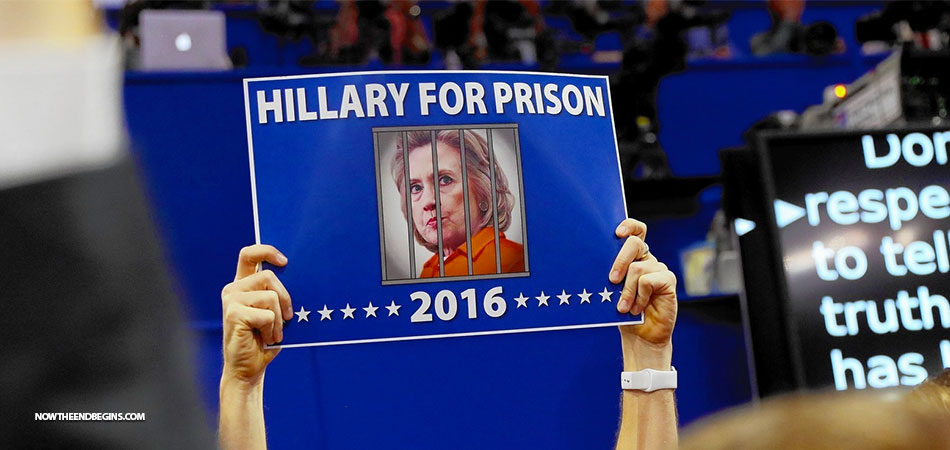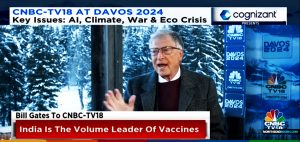Headline News
Is the US Headed for Double-Dip Recession?

 The U.S. economy is showing signs of slipping back into a recession thanks in part to financial strain at the state and local levels, says Meredith Whitney, head of Meredith Whitney Advisory Group.
The U.S. economy is showing signs of slipping back into a recession thanks in part to financial strain at the state and local levels, says Meredith Whitney, head of Meredith Whitney Advisory Group.
Whitney, who accurately called the financial crisis of a couple of years ago, said in late 2010 that widespread defaults were possible at the municipal levels.
That hasn’t happened yet, but state and local economies — as well as the national one — are in for tough times ahead, debt-ceiling impasse notwithstanding.
“I think you are getting increasing signs that we are really at risk for a double dip because our GDP number on Friday was an indication that states and local governments, 12 percent of GDP, are really pulling back,” Whitney tells CNBC.
Gross domestic product grew 1.3 percent in the second quarter of 2011, below private-sector forecasts for 1.8 percent, according to the Commerce Department.
While the debt-ceiling impasse was hard on everyone, states are in bad shape on their own regardless.
Federal stimulus money once pouring into local governments is drying up, and since 46 states are in the process of balancing their budgets, cuts to social programs and in contracts to private companies are going to rise.
“This affects the macro environment, this affects employment, this affects spending, this affects every corporation within the United States because so many corporations are reliant on contracts from state and local governments,” Whitney says.
“So this [debt crisis] situation in D.C. exacerbates it, but the states are in a bad situation even without the situation in D.C.”
Important: Can you afford to Retire? Shocking Poll Results
State and local governments will be forced to make the most draconian cuts are the ones that were most tied to the housing boom and will end up slashing social programs and raising taxes.
The states that have clean balance sheets and don’t have anything to worry about, in areas that we call the emerging markets of the United States, are going to attract more businesses, have higher tax surpluses and not have to cut programs and not have to raise taxes.
Others agree that the economy is risking dipping back into recession, especially after the debt-ceiling impasse and its effects on confidence. Many in the financial world markets are already buzzing about the S & P’s downgrading of American credit. In case you don’t know what that means to you. It means higher interest rates. Jimmy Carter style interest rates may be the result.
Congress has approved the government’s $14.3 trillion debt ceiling and thereby steered the government away from default by yesterday Aug 2,nd Tuesday’s deadline. Ratings agencies have said the U.S. could lose its AAA rating if it defaulted. FOr me the jury is still out on that prediction. Even if the government did avoid missing its obligations, it’s still unclear whether the damage the impasse has had on the country plus the enormous debt burden the government carries prompts some agencies to downgrade the country’s ratings anyway. In spite averting default yesterday the markets reacted negatively with a 200 plus loss in the stock market.
Growing uncertainty about the ultimate outcome inevitably has some negative effect on business capital investment and hiring as the Aug. 2 deadline came and went alluded to by David Crowe of the National Association of Home Builders, according to CNN.
Other economists were less worried. “If a deal appears imminent, there will not be any impact on GDP,” says Bill Watkins, executive director of the Center for Economic Research and Forecasting, CNN adds.
Find Rosie Onthe Right on facebook here

Free Bible Program
An Urgent Request For Bibles From Our Missionary In Ukraine And 3 New Jails Join The Bibles Behind Bars Family To Jumpstart This 4th Of July Weekend

Maybe you’re celebrating the 4th of July with fireworks, but at Bibles Behind Bars we are rejoicing for this massive open door of Bible outreach the Lord has given us
When it rains, it pours, and requests for Bibles in English, Spanish and Ukrainian are pouring in this week. I just got this email from Bro. Jean and he writes “I am right now in Odessa, Ukraine handing out and placing Chick tracts in the Russian and the Ukrainian language. We sure could use some more Ukranian Bibles, thank you in advance!” Talk about a ‘letter from the front’, that’s about as real deal as it gets. We are boxing up his request right now, and looking at 3 new jails who just joined the ‘Triple B’ family.
“So shall my word be that goeth forth out of my mouth: it shall not return unto me void, but it shall accomplish that which I please, and it shall prosper in the thing whereto I sent it.” Isaiah 55:11 (KJB)
The Hardin County Detention Center in Elizabethtown, Kentucky needs King James Bibles. Chaplain Joshua Shaffer wrote and told us “At this facility there are 648 beds but there more inmates than that due to them having to sleep in canoes so it would be close to around 700 inmates. We would take whatever amount of Bibles the Lord would provide for us. Thank you!” Inmates sleeping in canoes? Just imagine how precious a Bible would be to an inmate sleeping in a canoe, more precious than fine gold.
The Joe Corley Processing Center in Conroe, Texas needs Spanish Bibles. Chaplain Daigle writes saying “At our Facility, we have a large Spanish population, and we are in need of Spanish Bibles, Thank you.”
Leake County Correctional in Carthage, Mississippi needs King James Bible as well as devotional reading material. Chaplain Vasquez writes and says “We are a super regional with 450 county and state inmates both male and female. The inmates are very hungry for The Word and a good Bible to draw closer to God. It is becoming harder to receive donated Bibles as many sources aren’t supplying any until next year. Your support will be very much appreciated by the inmates and staff.” Another one of the dozens of jails who have been abandoned by their previous Bible suppliers who now turn to Bibles Behind Bars in near desperation for supplies. Praise the Lord we can meet the need!!
- HOW TO DONATE: Click here to view our WayGiver Funding page
If God has prospered you, please take a moment to click on the donate button to help us in this monumental task of providing King James Bibles, New Testaments, scripture portions, gospel tracts as well as Spanish Bibles to inmates in jails and prisons from Florida to Alaska, and every state in between. We need your prayers, we need your generous financial support, and we need you to stand with us in the closing days of the Church Age. Thank you so very much, TO THE FIGHT!!!
NOTE: If you need a 501 C3 Letter of Donation for tax purposes, please send your donation to:
NTEB Ministries
1340 N Great Neck Rd.
Ste. 1272-129
Virginia Beach, VA 23454.
Now The End Begins is your front line defense against the rising tide of darkness in the last Days before the Rapture of the Church
- HOW TO DONATE: Click here to view our WayGiver Funding page
When you contribute to this fundraising effort, you are helping us to do what the Lord called us to do. The money you send in goes primarily to the overall daily operations of this site. When people ask for Bibles, we send them out at no charge. When people write in and say how much they would like gospel tracts but cannot afford them, we send them a box at no cost to them for either the tracts or the shipping, no matter where they are in the world. We have a Gospel Billboard program. We are now broadcasting Bible studies, Podcasts and a Sunday Service 5 times a week, thanks to your generous donations. All this is possible because YOU pray for us, YOU support us, and YOU give so we can continue growing.
But whatever you do, don’t do nothing. Time is short and we need your help right now. The Lord has given us an open door with a tremendous ‘course’ for us to fulfill that will create an excellent experience at the Judgement Seat of Christ. Please pray for our efforts, and if the Lord leads you to donate, be as generous as possible. The war is REAL, the battle HOT and the time is SHORT…TO THE FIGHT!!!
“Looking for that blessed hope, and the glorious appearing of the great God and our Saviour Jesus Christ;” Titus 2:13 (KJB)
“Thank you very much!” – Geoffrey, editor-in-chief, NTEB
Biblical Archaeology
A Hymn Dedicated To Ancient Babylon And Sung To The God Marduk Has Been Discovered After 2,100 Years Using AI In Stunning Revelation 17 Harbinger

A hymn dedicated to the ancient city of Babylon and sung to the god Marduk has been discovered after 2,100 years with the help of AI
The Bible doesn’t mention a Babylonian god named ‘Marduk’, but it does talk a lot about the gods of Babylon especially in the book of Daniel. But we know from this song ‘Hymn of Babylon’ that the god Marduk is referred to as the ‘architect of the universe’, so that would make him the main god. In Jeremiah 50:2 we read about the fall of the gods of Babylon, Bel and Merodach. In all likelihood, Merodach is Marduk, and the Strong’s reference H4781 says that Merodach is Marduk in ancient Assyrian.
“Declare ye among the nations, and publish, and set up a standard; publish, and conceal not: say, Babylon is taken, Bel is confounded, Merodach is broken in pieces; her idols are confounded, her images are broken in pieces.” Jeremiah 50:2 (KJB)
“And he cried mightily with a strong voice, saying, Babylon the great is fallen, is fallen, and is become the habitation of devils, and the hold of every foul spirit, and a cage of every unclean and hateful bird.” Revelation 18:2 (KJB)
Christian, we are living at the very tail end of the Church Age, and we will soon be removed in the Rapture. After we leave, the time of Jacob’s trouble will commence and Babylon as described in Revelation 17 and 18 will take center stage. News reports like this only strengthens my faith in the unfolding end times happening all around us. Babylon will rise, as we see in Revelation 17 and 18, and a hymn dedicated to its most-powerful god, lost for 2,100 years, and now brought back to us through AI is some crazy stuff. Think God is trying to show us something? I do.
Hymn of Babylon is pieced together after 2,100 YEARS: Scientists use AI to reconstruct ancient song
FROM THE DAILY MAIL UK: Sung to the god Marduk, patron deity of the great city, the poem describes Babylon’s flowing rivers, jeweled gates, and ‘bathed priests’ in stunning detail. Although the song was lost to time after Alexander the Great captured the city, fragments of clay tablets survived in the ruins of Sippar, a city 40 miles to the North.
In a process that would have taken ‘decades’ to complete by hand, researchers used AI to piece together 30 different tablet pieces and recover the lost hymn. Originally 250 lines long, scientists have been able to translate a third of the original cuneiform text. These lines reveal a uniquely rich and detailed description of aspects of Babylonian life that had never been recorded before.
Lead researcher Professor Enrique Jiménez, of Ludwig Maximilian University (LMU), told MailOnline that the hymn’s literary quality is ‘exceptional’.
‘It’s meticulously structured, with each section flowing seamlessly into the next,’ he said.
The hymn begins with grand praise to the god Marduk, calling him the ‘architect of the universe’. The poem’s author then turns to the city of Babylon, describing it as a rich paradise of abundance.
The hymn writes: ‘Like the sea, Babylon proffers her yield, like a garden of fruit, she flourishes in her charms, like a wave, her swell brings her bounties rolling in.’ There are also descriptions of the river Euphrates, which still runs through modern-day Iraq, and its floodplains upon which ‘herds and flocks lie on verdant pastures’. READ MORE
Now The End Begins is your front line defense against the rising tide of darkness in the last Days before the Rapture of the Church
- HOW TO DONATE: Click here to view our WayGiver Funding page
When you contribute to this fundraising effort, you are helping us to do what the Lord called us to do. The money you send in goes primarily to the overall daily operations of this site. When people ask for Bibles, we send them out at no charge. When people write in and say how much they would like gospel tracts but cannot afford them, we send them a box at no cost to them for either the tracts or the shipping, no matter where they are in the world. We have a Gospel Billboard program. We are now broadcasting Bible studies, Podcasts and a Sunday Service 5 times a week, thanks to your generous donations. All this is possible because YOU pray for us, YOU support us, and YOU give so we can continue growing.
But whatever you do, don’t do nothing. Time is short and we need your help right now. The Lord has given us an open door with a tremendous ‘course’ for us to fulfill that will create an excellent experience at the Judgement Seat of Christ. Please pray for our efforts, and if the Lord leads you to donate, be as generous as possible. The war is REAL, the battle HOT and the time is SHORT…TO THE FIGHT!!!
“Looking for that blessed hope, and the glorious appearing of the great God and our Saviour Jesus Christ;” Titus 2:13 (KJB)
“Thank you very much!” – Geoffrey, editor-in-chief, NTEB
Donald Trump
If You Study History, The Fact That New Federal Prison Alligator Alcatraz Was Built From The Ground Up In Only 8 Days Should Terrify You, Seriously

The first photos of ‘Alligator Alcatraz’ give a bleak inside look at the new migrant center deep in the Florida Everglades — as authorities prepare to stash up to 5,000 detainees in wire cages.
The Dachau Concentration Camp was established in March 1933, shortly after Adolf Hitler became Chancellor of Germany, and it was not created initially to slaughter Jews by the millions. Far from it, Dachau was a repurposed former military base that held opponents of the Nazi regime, political dissidents and illegal aliens. The establishment of the camp also aimed to scare the German people into obeying and supporting the Nazi regime. In short, it was a terrifying place you would never want to be sent to. Alligator Alcatraz is such a place, with the terror level hitting a 10 on the end times meter. The fact that the whole camp was built, from start to finish in 8 days, should terrify you. You better pray this isn’t the first of many, and that’s the memo.
“The thing that hath been, it is that which shall be; and that which is done is that which shall be done: and there is no new thing under the sun.” Ecclesiastes 1:9 (KJB)
If you think comparing Alligator Alcatraz to the Dachau concentration camp is “a bridge too far”, you might want to go back and read about everything you missed in history class when you were back in high school. Dachau was simply a holding center for foreigners and political enemies, right up to the day that it wasn’t. Dachau became the template for what would spread to multiple countries and eventually killing 12 million people. With the construction of Alligator Alcatraz, funded by the people at FEMA, we now have a template for camps that can be built in all 50 states in under 2 weeks apiece. Trump said this yesterday: “Well, I think would like to see them in many states. Really, many states,” the president said. “And, you know, at some point, they might morph into a system.” Dachau was a holding center, then it became a system and finally an industry. Already, plans are in the works for another massive immigrant center on the site of Camp Blanding here in Clay County, Florida.
“The request for proposals is out,” said Kevin Guthrie, executive director of the Florida Division of Emergency Management, referencing a government process for seeking bids from contractors. “… It closes Wednesday at 5 o’clock. Then we will do notice to proceed. So, I would say right after our wonderful Independence Day, we will be starting construction there at that facility.”
And tick, tock, goes the end times clock. Happy Independence Day.
Stark first photos from inside ‘Alligator Alcatraz’ reveal bleak digs for up to 5,000 migrants
FROM THE NY POST: Video taken during a tour by President Trump on Tuesday revealed rows upon rows of empty industrial metal bunk beds enclosed in hastily constructed cages made up of chain fences.
“Biden wanted me in here, that son of a b—h,” President Trump said jokingly Tuesday as he was shown around the vast secure facility hidden within the subtropical wetlands of South Florida teeming with alligators, crocodiles and pythons.
“I looked outside, and that’s not a place I want to go hiking anytime soon,” Trump told reporters after his tour. “We’re surrounded by miles of treacherous swampland, and the only way out is really deportation.”
Here is a first look inside the brand-new Alligator Alcatraz Federal Prison in the Florida Everglades where 3,000+ Illegal immigrants will be housed in metal cages. The government assures us this will be a “temporary” holding facility. Let’s see what actually happens. pic.twitter.com/HuF963HWoS
— Now The End Begins (@NowTheEndBegins) July 1, 2025
The complex, located at the Dade Collier Training and Transition Airport, will cost an estimated $450 million a year to operate, and the first migrants are set to arrive as soon as Wednesday. Some of the cost of the facility — which Florida Gov. Ron DeSantis said was built in just eight days — will be reimbursed from FEMA’s Shelter and Services Program, officials said.
The site features at least 200 security cameras, 28,000 feet of barbed wire and more than 400 security personnel, officials said.
Dubbed ‘Alligator Alcatraz’ or “Gator Gitmo,” the state-built facility in Florida’s infamous Alligator Alley aims to help ICE reach its migrant deportation targets. It lies in the middle of Route 41 — the road that crosses the south of the Sunshine State from Miami to Naples.
“There’s only one road leading in, and the only way out is a one-way flight,” White House press secretary Karoline Leavitt said on Monday ahead of President Trump’s visit. “It is isolated and surrounded by dangerous wildlife and unforgiving terrain.”
Former President Obama said jokingly in 2011 that Republicans were so hardline, they would demand to use alligators to deter illegal immigrants — and Trump and DeSantis have now made that a reality. The Trump administration has played up the dangerous gator-infested surroundings of the center, sharing memes of alligators wearing ICE hats on Department of Homeland Security social-media accounts and even selling “Alligator Alcatraz”-related merchandise.
Around 100 National Guard troops will be sent to the site about 37 miles from Miami to help provide security, DeSantis said Tuesday. Trump said jokingly that new detainees were going to be taught how to evade alligators by Homeland Security.
“We’re going to teach them how to run away from an alligator, OK, if they escape from prison,” he said. “How to run away. Don’t run in a straight line. Run like this,” he added, making zigzag motions with his hands.
Opponents have slammed the scheme as inhumane, with one X user comparing footage of the site to “a concentration camp” and adding that they couldn’t see any air conditioning or vents inside the facility. READ MORE
ICE detention site at Camp Blanding to house 2,000 detainees
Now The End Begins is your front line defense against the rising tide of darkness in the last Days before the Rapture of the Church
- HOW TO DONATE: Click here to view our WayGiver Funding page
When you contribute to this fundraising effort, you are helping us to do what the Lord called us to do. The money you send in goes primarily to the overall daily operations of this site. When people ask for Bibles, we send them out at no charge. When people write in and say how much they would like gospel tracts but cannot afford them, we send them a box at no cost to them for either the tracts or the shipping, no matter where they are in the world. We have a Gospel Billboard program. We are now broadcasting Bible studies, Podcasts and a Sunday Service 5 times a week, thanks to your generous donations. All this is possible because YOU pray for us, YOU support us, and YOU give so we can continue growing.
But whatever you do, don’t do nothing. Time is short and we need your help right now. The Lord has given us an open door with a tremendous ‘course’ for us to fulfill that will create an excellent experience at the Judgement Seat of Christ. Please pray for our efforts, and if the Lord leads you to donate, be as generous as possible. The war is REAL, the battle HOT and the time is SHORT…TO THE FIGHT!!!
“Looking for that blessed hope, and the glorious appearing of the great God and our Saviour Jesus Christ;” Titus 2:13 (KJB)
“Thank you very much!” – Geoffrey, editor-in-chief, NTEB
-

 George Soros9 years ago
George Soros9 years agoProof Of George Soros Nazi Past Finally Comes To Light With Discovery Of Forgotten Interview
-

 Election 20169 years ago
Election 20169 years agoDEAD POOL DIVA: Huma Abedin Kept Those Hillary Emails That The FBI Found In A Folder Marked ‘Life Insurance’
-

 Election 20169 years ago
Election 20169 years agoCrooked Hillary Campaign Used A Green Screen At Today’s Low Turnout Rally In Coconut Creek FL
-

 George Soros9 years ago
George Soros9 years agoSORE LOSER: George Soros Declares War On America As Violent MoveOn.Org Protests Fill The Streets
-

 Donald Trump9 years ago
Donald Trump9 years agoDonald Trump Will Be 70 Years, 7 Months And 7 Days Old On First Full Day In Office As President
-

 Headline News9 years ago
Headline News9 years agoIf Hillary Is Not Guilty, Then Why Are Her Supporters Asking Obama To Pardon Her? Hmm…
-

 Election 20169 years ago
Election 20169 years agoWikiLeaks Shows George Soros Controlling Vote With 16 States Using SmartMatic Voting Machines
-

 End Times9 years ago
End Times9 years agoFalse Teacher Beth Moore Endorses The Late Term Partial-Birth Abortion Candidate Crooked Hillary









































































